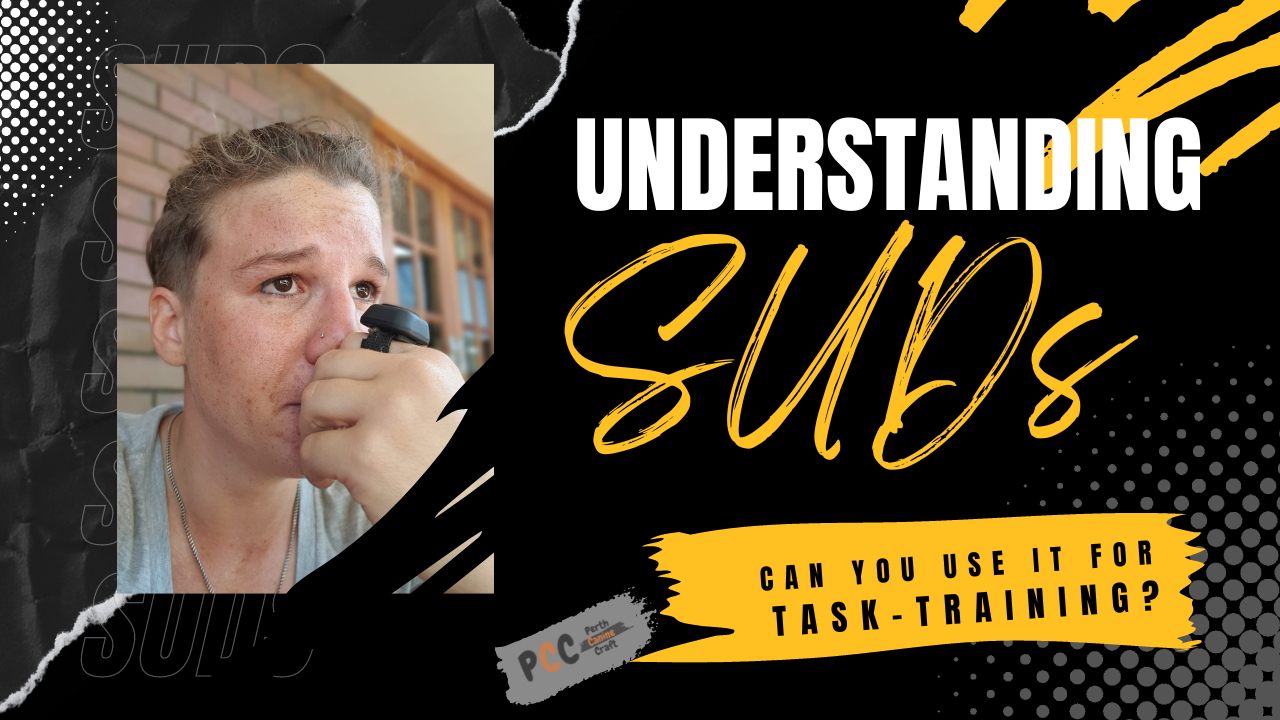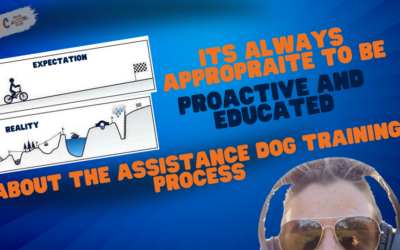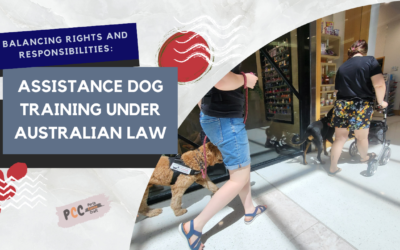For the longest time, I’d been engaging with a concept without fully grasping its significance. It was a notion I came across as part of my journey in understanding mental health and cognitive behavioural therapy. This concept is the “Subjective Units of Distress Scale”, or SUDS for short. I’d like to share with you why understanding SUDS is pivotal in my work as a dog trainer, specifically when training assistance dogs for psychiatric purposes.
A Closer Look at SUDS
Essentially, SUDS is a self-assessment tool – a scale from 0 to 100, where individuals rate their current level of distress, discomfort, or anxiety. A zero equates to absolute calm and relaxation, while a hundred represents peak distress or anxiety. It’s an instrument designed to help mental health professionals gauge a person’s distress severity and monitor any changes over time.
SUDS in Action
One area where SUDS proves exceptionally beneficial is in exposure therapy, a facet of cognitive behavioural therapy. During exposure therapy, a person gradually faces a distressing or feared situation until their distress level (as measured by SUDS) decreases.
The Subjectivity of SUDS
What’s essential to keep in mind is the subjectivity of SUDS. Distress levels are personal and can vary significantly between individuals – a level of 50 for one might be a crushing 90 for another. SUDS isn’t about comparisons but about tracking changes within a single person over time.
SUDS and Assistance Dog Training
Understanding SUDS and its role becomes crucial when I train assistance dogs. My clients who require their dogs for psychiatric purposes often need to uncover their own SUDS levels. These levels can then be utilised for task-training their assistance dogs – a process where dogs are trained to do specific tasks to aid a person with a disability.
As a dog trainer, it’s beyond my scope to determine each client’s SUDS levels. That’s why it’s critical to have a supporting mental health team working in tandem with anyone intending to train their own assistance dogs. This collaborative approach is the foundation of successful assistance dog training and ensures a stronger bond between dog and owner.
In conclusion, understanding SUDS isn’t just an academic exercise; it’s a practical tool that helps us train assistance dogs more effectively. With the right approach, and with the support of a medical team, understanding and utilising SUDS can pave the way to a more successful assistance dog training journey.





0 Comments